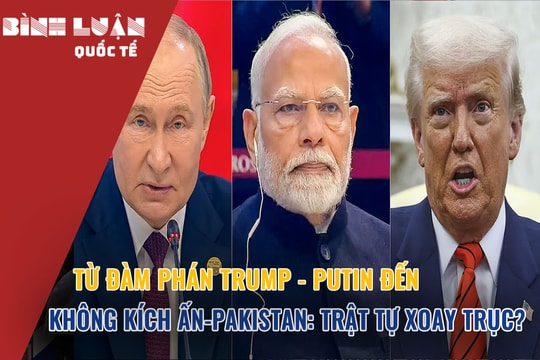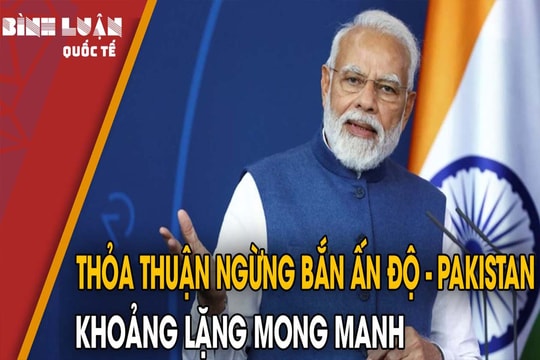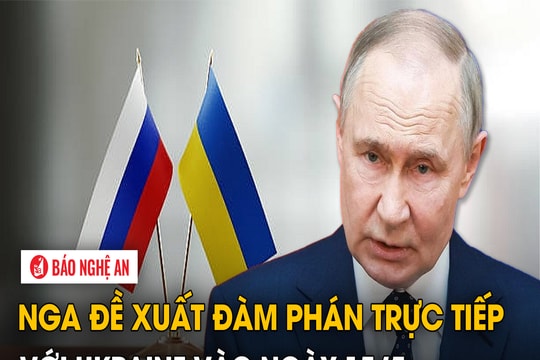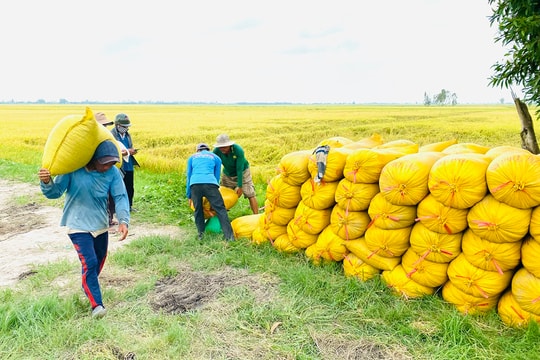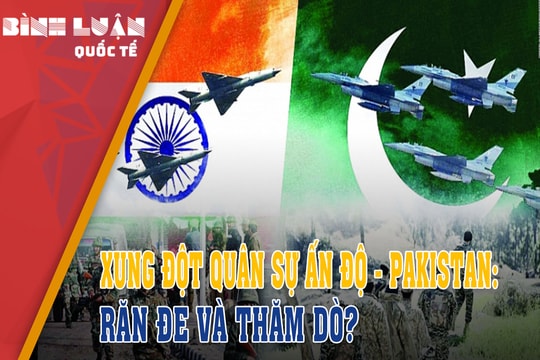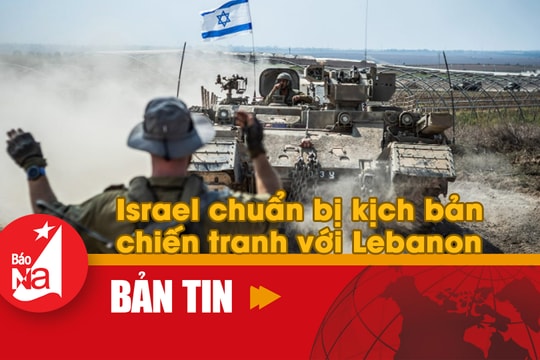Accused of involvement in terrorist attacks in India, Pakistan in the midst of "turbulent times"
(Baonghean) - After the terrorist attack that killed 44 Indian soldiers in Kashmir, India launched a diplomatic campaign to isolate Pakistan. However, this was only the first blow that Pakistan had to bear, the bigger price was the "turning of the back" of the US - which considered the South Asian country an ally in the war against terrorism in the region.
India forced to "take action"
An attack on an Indian military convoy in Indian-controlled Kashmir has killed 44 soldiers. The Pakistan-based Islamist group Jaish-e-Mohammad said one of its members carried out the suicide bombing.
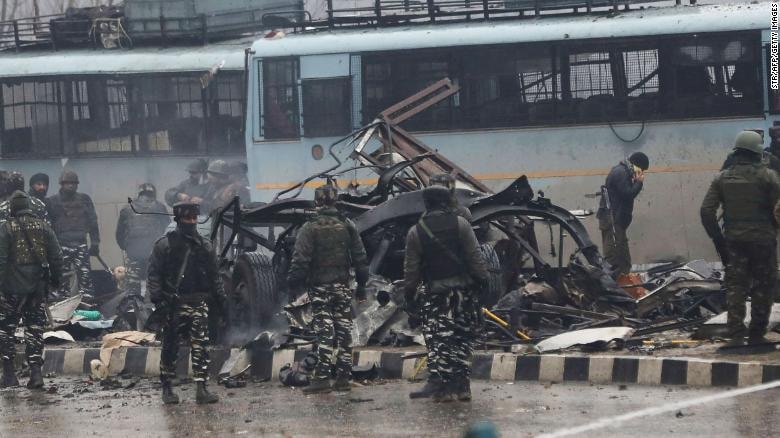 |
| Indian authorities investigate the scene after the attack. Photo: CNN |
Due to historical factors, clashes between Indian and Pakistani forces are not uncommon. But the Indian response this time is considered extremely tough and harsh, not only because this is one of the bloodiest attacks on Indian government forces in the region, but also because of the current political context in India.
India is just two months away from a general election, with Prime Minister Narendra Modi's ruling Hindu Nationalist Party in the lead. Policy towards neighboring Pakistan has always been one of the key factors that greatly affects voters' votes.
Meanwhile, the anti-Pakistan atmosphere after the attack in Kashmir is rising very high, many protests have taken place with chants of "attack Pakistan", many heated debates on TV channels demanding the Indian government to take retaliatory steps.
Domestic pressure forced Indian Prime Minister Narendra Modi to take action. One day after the attack, Foreign Secretary Vijay Gokhale met with about 25 heads of diplomatic missions in New Delhi, including the five permanent members of the United Nations Security Council, South Asian countries and other important partners such as Japan, Germany, South Korea, Israel, Canada, etc., in which he affirmed the role of the Jaish-e-Mohammed group and asked the Pakistani government to take “immediate and verifiable action” against this group, which India considers a terrorist group.
According to analysts, the move to diplomatically isolate Pakistan is just the first step by India, and there are still further retaliatory actions that can be considered, depending on the reaction of domestic public opinion.
To “hit” Pakistan’s economy, India could revoke Pakistan’s “most favored nation” status, which allows the country to enjoy many preferential trade relations. Immediately, many Pakistani exports to India will be subject to new tariffs of up to 200%.
Military strikes cannot be ruled out either. Indian security forces have been given free rein by the Prime Minister to take action against any act of violence – a move that is believed to pave the way for military strikes against Pakistan as soon as a high-level order is given.
A possible military strike scenario would see India occupying some heights along the Line of Control between the two sides in the Kashmir region to launch precision airstrikes on some “non-state” targets of the Pakistani side.
US increases pressure
A tough response from India is within Pakistan’s expectations. However, the US response is unlikely! Despite recent turbulence in relations, Pakistan remains a US ally in the region, playing a major role in counter-terrorism operations in South Asia since the September 11 terrorist attacks nearly 20 years ago.
Yet, as soon as the attack occurred, despite Pakistan's denial of all accusations, the US publicly expressed its support for India, criticized Pakistan, and affirmed to strengthen counter-terrorism cooperation with India.
To improve India's military capabilities in the fight against terrorism, the US has also offered to sell the country Guardian unmanned surveillance aircraft, aircraft carrier technology and F-18 and F-16 fighter jets.
US security adviser John Bolton also spoke with his Indian counterpart Ajit Doval, in which the two sides affirmed that they will stand together to force Pakistan to fulfill its obligations under the UN resolution on counter-terrorism.
Analysts say the fact that the Jaish-e-Mohammad group - listed as a terrorist group by the US - claimed responsibility for the attack shows the limitations of US policy towards Pakistan.
A year ago, the administration of US President Donald Trump suspended security assistance to Pakistan, calling it a “punishment” for Pakistan’s failure to take effective measures against extremist groups.
But since then, many extremist groups in Pakistan have continued to operate openly, carrying out attacks against neighboring countries. This has further affected the US strategy in South Asia as the country is planning to withdraw half of its troops from the Afghanistan battlefield.
Compared to the administration of his predecessor Barack Obama, the administration of President Donald Trump is said to have a tougher approach towards ally Pakistan.
In addition to cutting security aid, last June, the US also established an international body called the Financial Action Task Force (FATF) to coordinate efforts to prevent terrorist financing and money laundering.
The FATF has placed Pakistan on its “grey list”, requiring the country to address its vulnerabilities related to terrorist financing if it wants to remain a member of the international financial network.
But what is happening now shows that this toughness is not enough. Hafiz Saeed, a terrorist “blacklisted” by the US and the UN, continues to organize a large protest in Pakistani Kashmir, and even tried to register a political party last year.
Candidates linked to terrorism and other militants also ran in the elections last July. Meanwhile, the Jaish-e-Mohammad group has greatly expanded its base…
 |
| Indian people protest against Pakistan after the attack. Photo: CNN |
Therefore, there are many voices within the United States urging President Donald Trump to put more pressure on the Pakistani government after the attack that killed 44 Indian soldiers.
Because the US needs to ensure Pakistan fulfills its commitments on counter-terrorism as the US prepares to withdraw half of its troops from the Taliban battlefield.
The Trump administration can also use a number of other tools to pressure Pakistan, such as revoking its non-NATO Ally status, banning some senior officials from traveling to the US, and refusing to support the International Monetary Fund's bailout package.
Up to this point, Pakistan has firmly denied all accusations from India as well as the international community about its involvement behind the bloody attack on the Indian military convoy.
Whether Pakistan can prove its innocence or not, the current internal situation in India as well as in the region has almost "defaulted" to a bad scenario that Pakistan will have to face, challenging Imran Khan's commitment to bring peace to the Kashmir region after taking over as acting Prime Minister of Pakistan since August last year.

